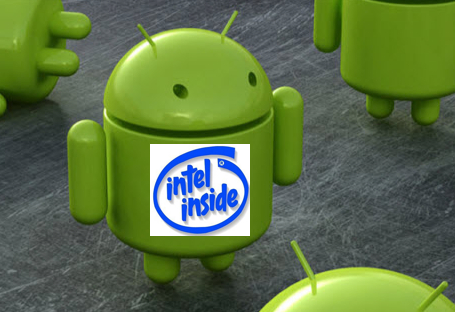Google and Intel Android pairing spells trouble for Microsoft


My fellow ZDNet writer James Kendrick touches on this when he says that, besides Intel and Google themselves, the winners of this deal include "OEMs already fluently speaking Intel yet not already on the Android team." You know, those companies like Dell that have been speaking fluent Windows for the last couple of decades.
I'm not suggesting that Android will challenge Windows on the desktop. No, I think Google's Chrome OS can spell trouble for desktop Windows, but not Android. Not yet anyway.
But, look at Metro, Microsoft's preferred Windows 8 interface. Is that really a desktop interface? I don't think so. I see a smartphone and tablet interface. And, I don't think Microsoft's tablets, whenever they show up will be competitive with 2012/13's Android tablets. I'm not even going to mention the iPad 4, which will be out by that time.
I look into my crystal ball and I see Microsoft frozen out of the low-end of the smartphone and tablet market by Android on both Intel and ARM processors. At the high-end, I see Apple continuing to the dominant player.
The desktop? Yes, that will still be Windows, but just how important will the desktop be in the next few years? It's a matter of great debate, but I think that the simple fact that Microsoft is boosting Metro as its interface on everything from Windows Phones to the desktop tells you they think they have to be a player on smartphones and tablets to keep the stockholders happy.
You can tell by the above that I'm presuming that Android is going to beat its patent enemies. You're right I do.
Patent wars really have nothing to do with who copied what these days. Software patents are so broadly constructed that everyone who develops anything violates them. No, who wins and loses s all about being able to outlast your opponents in court, which isn't a problem for Google, and having your own patent ammo dump to threaten your enemies with. That last has been a problem for Google.
Now that Google is on its way to owning Motorola Mobility though, albeit a pretty price, I think Google has far fewer patents problems. When you add in Intel, with its rich patent portfolio, to Google's side I no longer have any worries about Google fending off all the IP (intellectual property) attacks its enemies can bring to bear.
That's also bad news for Microsoft. Their best bet in getting a chunk of the mobile market was to get it to stagnate in pointless patent wars. We're still going to be stuck with patent lawsuits for the next few years, but I don't see any OEMs holding back from joining forces with the powerful one-two punch of Google and Intel.
Last, and I'm sorry to say, least, yet another Linux-based mobile operating system, MeeGo seems destined to join HP's WebOS in the operating system junkyard. With Intel, MeeGo's remaining major supporter, putting its energy into Android I don't see any way that MeeGo will survive. Yes, I know Doug Fisher, general manager of Intel's Systems Software Division, said just the other week that Intel was "fully committed" to MeeGo, but that's life in technology. Here today, gone tomorrow.
That's a pity. I liked both MeeGo, but mobile operating system consolation was inevitable. With this Google/Intel move I see the consolidation coming even faster and, at the end of it all, I suspect we're only going to see Android and iOS standing in the mobile space. Sorry Windows. Too little, too late.
Related Stories:
Intel, Google partner on optimized Android phones
The winners and losers of the Android/Intel deal
It's too early to declare Windows 8 an iPad killer
IDF 2011: Intel talks Ivy Bridge Ultrabooks, shows working Haswell chip